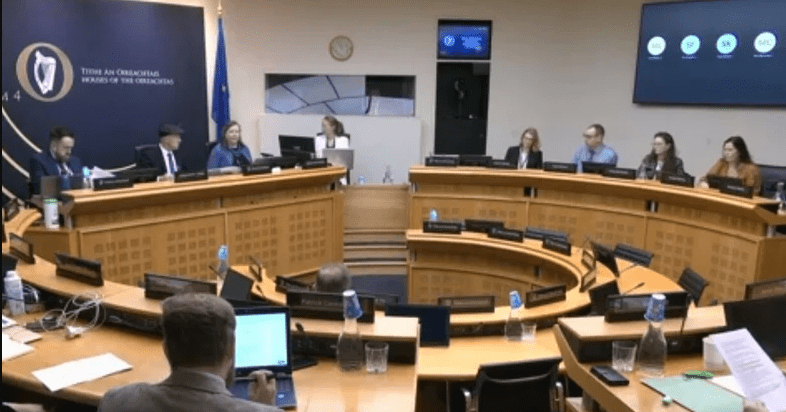The introduction of euthanasia in Ireland could lead to the closure of care homes and have an ill effect on the healthcare system, according to the minority report from the members of the Oireachtas Committee on Assisted Dying. A government seeking savings in the healthcare system could favour assisted suicide over comprehensive end-of-life medical treatments, they said.
Last month, the Joint Oireachtas Committee on Assisted Dying presented its final report, which received approval by nine of the Committee’s fourteen members. A minority report was also produced on that occasion, but its release coincided with the resignation of Leo Varadkar, which overshadowed its public reception. Given the circumstances, it is worth now considering the contents of this minority report and the significant issues it raises.
According to the minority report, several critical issues have been overlooked or insufficiently addressed by the Committee.
Firstly, there are worries that the introduction of euthanasia or assisted suicide could detract from the quality and availability of palliative care services. The minority members are concerned about the economic implications of introducing assisted dying, including the potential for healthcare cost-cutting measures that could favour assisted dying over more extensive and expensive care options.
“Why should the service be provided by the State? How can one ensure that a Government seeking savings in the health-care system will not prefer assisted dying over end-of-life medical treatments? How can one ensure that health insurers do not promote assisted dying as a cheaper option for elderly or chronically ill patients? Given the potential, and possibly hidden, impact of potential budgetary savings on policy, the Committee should have undertaken to investigate these matters in depth.” (p. 33)
A second major critical issue regards the ethical implications for healthcare providers involved in “assisted dying”. Requiring professionals to participate in or refer for euthanasia and assisted suicide can compromise their ethical standards and the trust placed in them by patients, says the minority document.
More specifically, because the Committee recommends that only individuals should be allowed to avail of conscientious objection to euthanasia or assisted suicide, institutions with a pro-life ethos such as Catholic hospitals or nursing and care homes may be forced to close, as it has happened in other countries.
“The [Committee] majority believes that, once the State legislates for assisted dying, it must somehow become an obligation for a State-funded institution, or indeed any caring institution, to provide it. Yet any legislation reflecting such thinking may lead to the closure of many care homes and the withdrawal of staff from an already understaffed Irish healthcare sector.” (p. 32)
Another criticism from the minority is that the safeguards proposed by the Committee’s final report are inadequate for protecting vulnerable groups, including the elderly, disabled, and those suffering from mental illnesses. These safeguards would fail to prevent coercion and abuse effectively.
“The Committee majority voted down a recommendation to make it a criminal offence for any health professional to advertise assisted dying or to initiate the question of assisted dying with any patient.” (p. 19)
The minority report highlights potential societal impacts, such as the normalisation of euthanasia and suicide, and their effect on societal attitudes towards the elderly and disabled. The Committee minority members are concerned about the message the report sends regarding the value of life, especially for those considered vulnerable. The official final report fails to adequately address the complex psychological impacts of assisted dying on patients and their families. This includes the risk of increased suicide rates and the need for comprehensive mental health supports.
The minority report also expresses concerns about the legal implications of assisted dying, including potential challenges to the constitutionality of such legislation. They worry about the legal precedents it might set and the implications for the right to life enshrined in the Constitution.
The minority report was endorsed by the three members of the Joint Oireachtas Committee. Notably, the Chair of the Committee, independent Michael Healy Rae, together with Fianna Fail TD Robert Troy and independent Senator Ronan Mullen. One member of the Committee was absent from the final vote, one member, namely Pa Daly from Sinn Fein, abstained, and the rest voted in favour.
















